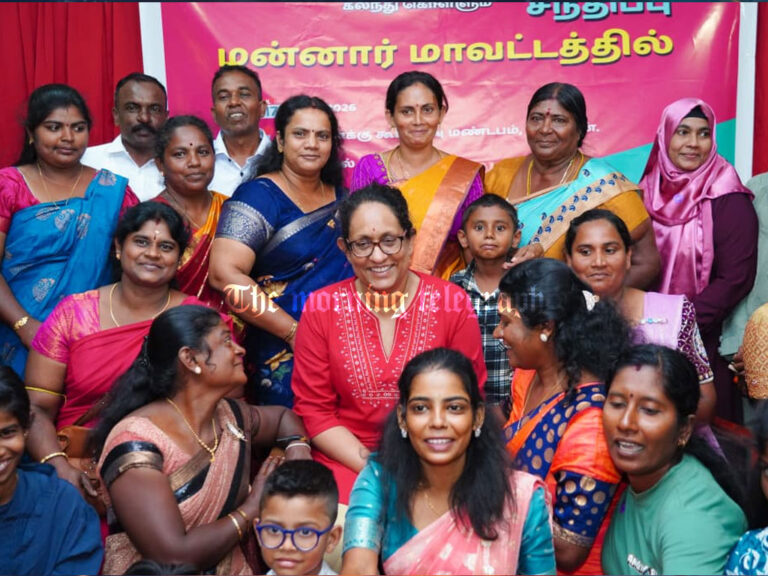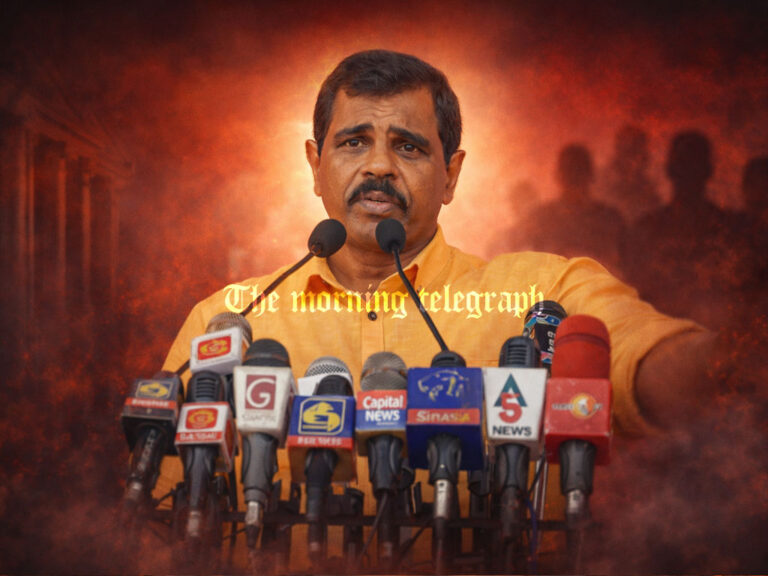
Colombo, July 6, 2024 — In a pivotal address to the nation, President Ranil Wickremesinghe underscored the urgent need for establishing a fresh economic and political system in Sri Lanka to overcome current challenges and foster sustainable development. The president’s call for reform highlights a critical juncture in the nation’s trajectory, aiming to revitalize the economy and strengthen democratic governance.
In his televised speech, President Wickremesinghe outlined a comprehensive plan aimed at transforming Sri Lanka’s economic and political landscape. He emphasized the necessity for bold reforms to tackle systemic issues such as economic instability, political corruption, and social inequality.
“We stand at a crossroads,” President Wickremesinghe stated. “The existing systems have failed to address the needs and aspirations of our people. It is imperative that we establish a new framework that promotes economic resilience, democratic governance, and social justice.”
The president highlighted the need for economic diversification as a cornerstone of the proposed reforms. He stressed that reliance on traditional sectors like agriculture and tourism must be supplemented by the development of new industries, including technology, renewable energy, and manufacturing.
“Our economy must be resilient and diversified to withstand global shocks and provide opportunities for growth and employment,” he said. “We will invest in innovation, support small and medium-sized enterprises, and create an environment that encourages entrepreneurship.”
Addressing the country’s debt crisis, Wickremesinghe outlined plans for more responsible fiscal policies. He called for stringent measures to manage public debt, including the restructuring of existing debt and the implementation of fiscal discipline to prevent future financial instability.
“We must adopt prudent fiscal management to ensure that our public finances are sustainable and that we do not burden future generations with insurmountable debt,” he emphasized.
The president also proposed measures to attract foreign investment, including simplifying regulations, improving infrastructure, and enhancing transparency. He noted that creating a favorable business environment is crucial for boosting foreign direct investment and stimulating economic growth.
“We will create a climate that welcomes investors and ensures that Sri Lanka is seen as a reliable and attractive destination for global business,” Wickremesinghe declared.
President Wickremesinghe stressed the need to fortify democratic institutions and ensure greater accountability and transparency in governance. He proposed reforms to enhance the independence of the judiciary, strengthen anti-corruption measures, and promote the rule of law.
“We must rebuild trust in our institutions and ensure that they operate with integrity and serve the interests of the people,” he said. “This includes safeguarding the independence of our judiciary and enhancing the effectiveness of our anti-corruption agencies.”
The president also called for comprehensive electoral reforms to ensure fair representation and enhance the inclusivity of the political system. He suggested measures to improve the electoral process, reduce corruption, and encourage greater participation of marginalized groups in politics.
“Our electoral system must be reformed to reflect the will of the people more accurately and to ensure that all voices are heard in our democracy,” he noted.
Wickremesinghe advocated for the decentralization of power to regional and local governments, enabling more effective governance and greater responsiveness to local needs. He emphasized that empowering local authorities is key to fostering development and addressing regional disparities.
“Decentralizing power will ensure that decision-making is more responsive and that local communities have a greater say in the policies that affect their lives,” he stated.
The president highlighted the importance of improving access to quality education and healthcare as essential components of social development. He proposed increased investment in these sectors to ensure that all citizens have the opportunity to thrive and contribute to the nation’s progress.
“Investing in education and healthcare is critical for building a more equitable society and ensuring that all our people have the tools they need to succeed,” he said.
Wickremesinghe also emphasized the need to address social inequalities, including those based on income, gender, and ethnicity. He proposed policies to promote social justice, reduce poverty, and ensure equal opportunities for all citizens.
“We must work tirelessly to eliminate inequality and create a society where everyone has the chance to achieve their full potential,” he declared.
The president’s address has been met with a mix of optimism and skepticism. Many citizens and civil society groups have welcomed the proposed reforms, expressing hope that they will lead to meaningful change. However, some opposition leaders have criticized the plans, questioning the government’s ability to implement them effectively.
“I am hopeful that these reforms will bring the positive change we need,” said Anjali, a university student in Colombo. “But we need to see concrete action, not just promises.”
International observers have generally reacted positively to the president’s speech, noting that comprehensive reforms are essential for Sri Lanka’s long-term stability and development. Several countries and international organizations have expressed their willingness to support Sri Lanka’s reform efforts through financial assistance and technical expertise.
“The proposed reforms are a step in the right direction,” said a spokesperson for the International Monetary Fund. “We look forward to working with the Sri Lankan government to support these initiatives.”
President Ranil Wickremesinghe’s call for a new economic and political system represents a bold vision for Sri Lanka’s future. As the country embarks on this path of reform, the coming months will be crucial in determining whether these ambitious plans can be translated into tangible progress and improved livelihoods for all Sri Lankans.




